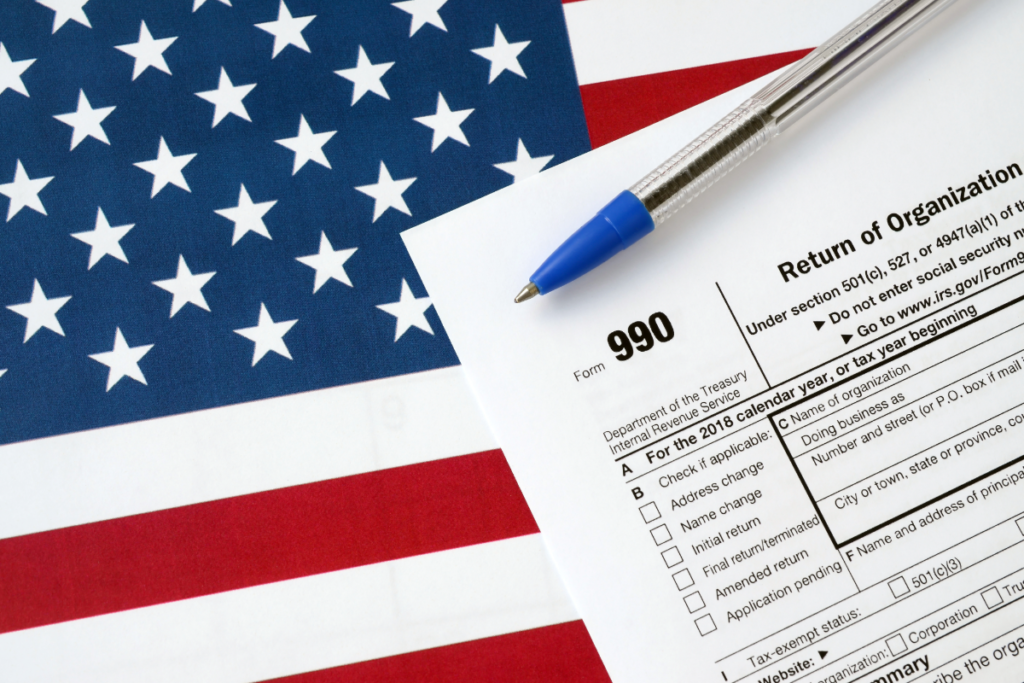Form 990, Return of Organization Exempt From Income Tax, is the IRS’ method of evaluation to make sure your nonprofit is financially honest and legitimate. The form is required for tax-exempt organizations to file each year to remain compliant with the regulations and requirements set by the IRS.
Form 990 requires expenses to be separated into one of three areas: program expenses, administrative expenses or fundraising activity expenses. Here’s where your statement of functional expense comes in handy; it breaks down expenditures into various categories and provides a function for each one.
The market value of donated services is reportable on Form 990 as program services revenue and can reduce the percentage of administrative and management costs that are directly paid for by your organization’s cash contributions.
Volunteers may provide unpaid labor, but that labor still has value that can affect both your taxes and overhead.
Your statement of financial position, or balance sheet, best represents the financial health of your nonprofit. It explains where you can find the lists of assets and liabilities and offers a good way to better understand your group’s general health. Positive net assets show you’re healthy. Negative net assets mean you have some reprioritizing to do.

Your statement of activities is your income statement, showing revenue and expenses over time, and is used to categorize your different revenue sources and expenses. You can use this document to review your change in net assets from the beginning to the end of the year.
You’re probably aware that the 2017 tax reform affected everything from how you report your income to how you manage volunteers. If not reported or managed correctly, some of a nonprofit’s income can be taxable.
Here are some factors you should be considering:
- A nonprofit can no longer aggregate the profits and losses from various trades and businesses in computing unrelated business taxable income, or UBTI. Nonprofits must be sure to segregate income and expenses from each trade or business in which they engage — UBTI is now computed separately.
- Nonprofits have to record and report the valuation of certain employee benefits, which can count as taxable income if not reported properly.
- A nonprofit’s UBTI includes any qualified transportation fringe benefit and on-premises athletic facilities provided to employees. However, proper reporting can save you from paying taxes on benefits. Avoid the addition for these items as UBTI if you include the cost of the benefits on your employees’ Forms W-2.
- Be aware of any fees for investments, though you don’t have to report them separately. Nonprofits are required to report investment income net of related external and internal expenses.
Your accountant will help you establish concrete internal controls that are essential for effective nonprofit accounting as checks and balances:
- Share financial duties. Someone besides your bookkeeper should approve write-offs.
- Install security policies. Nonprofit cybersecurity is important — you’re handling sensitive transactional data. Your accountant can help you implement specific policies to handle data.
- Take inventory of fixed assets, like computers, cellphones and other items your staff works with. This prevents inadvertent wrongdoing.
- Conduct regular audits to ensure accuracy of your financials and the financial health of your group. When audit results are published for the public, the results aid in financial transparency with current and future donors.
- Choose and use specialized software. Equip your group with the best software and people. Your software records and safeguards financial info. If you outsource, make sure you choose experts who specialize in nonprofit bookkeeping and accounting to streamline your processes and make your life easier.
Form 990 can show that your nonprofit has conducted its business in a way that’s consistent with your public responsibilities. Accountants can help make this a smoother operation.
To learn more about how our firm can serve your nonprofit organization, don’t hesitate to contact Kathy Corcoran at (302) 254-8240.
©2024

